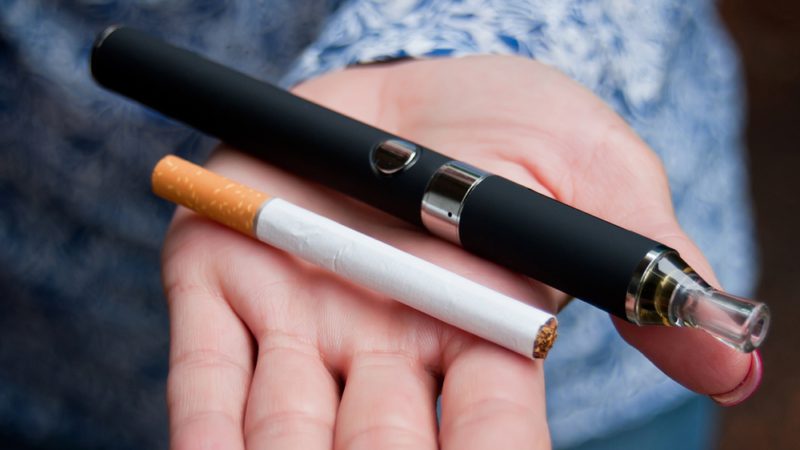
E-cigarettes—used regularly by more than 10% of U.S. teens and more than 3% of adults—were once pitched as a healthy alternative to tobacco cigarettes. But research increasingly links the use of e-cigarettes, or vaping, to many of the same life-threatening diseases that plague smokers.
In a breakthrough study, a group of researchers from the Keck School of Medicine of USC analyzed epithelial cells taken from the mouths of vapers, smokers, and people who had never vaped or smoked. They found that vapers and smokers had similar levels of DNA damage—more than twice the amount found in non-users. DNA damage was higher among those who vaped or smoked more frequently. It was also higher in vapers who used vape pods and mods, as well as sweet-, fruit- or mint-flavored vapes.
“For the first time, we showed that the more vapers used e-cigarettes, and the longer they used them, the more DNA damage occurred in their oral cells,” said Ahmad Besaratinia, PhD, MPH, professor of research population and public health sciences at the Keck School of Medicine and the study’s senior author.
“The same pattern held up in smokers.”
DNA damage to oral epithelial cells, which line the mouth, is an early change that is associated with an increased risk for many types of chronic disease, including cancer and inflammatory diseases.
The research, just published in the journal Nicotine & Tobacco Research, is the first to clearly distinguish between the DNA damage that occurs in exclusive vapers versus smokers and to provide details about the risks vapers face based on how often they vape and what devices and flavors they use. Vapers are difficult to study because they typically have a history of cigarette smoking or are dual users, who both vape and smoke tobacco cigarettes.
“We designed our study to tease out the effects of vaping in e-cigarette users who were neither cigarette smokers nor dual users at any point in their lives,” said Besaratinia.
The new study builds on earlier research from Besaratinia and his team, which showed that vaping is linked to alterations in gene expression, epigenetic changes and other biological changes that are implicated in disease development.
“The devices and flavors that are most popular and highly consumed by youth vapers, as well as adults, are the ones that are associated with the most DNA damage,” Besaratinia said. “Clearly these results have significant implications, both for public health and regulatory agencies.”
More use, more damage
The researchers recruited 72 healthy adults and split them into three groups, matched for age, race and gender: current vapers (who had never smoked), current smokers (who had never vaped) and people with no history of smoking or vaping. They verified the history of each participant using detailed questionnaires, interviews and biochemical tests to ensure that any observed effects could be directly linked to either vaping or smoking.
Besaratinia and his team also collected data on how often, and for how long, participants had smoked or vaped, and in the case of vaping, what devices and flavors they used. Then, they collected a sample of epithelial cells from each participant’s mouth and tested for damage to specific genes known to indicate assault to the genome.
The tests showed similar levels of DNA damage between vapers and smokers: 2.6 times and 2.2 times that of non-users, respectively. In terms of devices, vapers who used pods had the highest levels of DNA damage, followed by those who used mods. In terms of flavors, sweet-flavored vapes were linked to the highest levels of DNA damage, followed by mint/menthol- and fruit-flavored vapes.
Popular—but harmful
The findings are highly relevant for public health agencies and regulators who aim to keep dangerous products away from vulnerable groups, including children and adolescents, Besaratinia said. The most popular products, including flavored vapes—which are used by about 85% of teens who vape—also appear to be the most harmful, in terms of producing DNA damage.
The team’s next task is to replicate the findings in a larger group of participants. They also plan to study other biological effects resulting from DNA damage that are even more closely related to the onset of chronic disease.
This story was originally published by the University of Southern California on February 13, 2023.